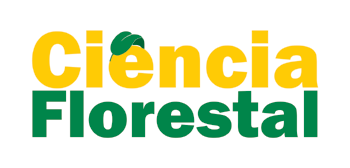Abstract
This study aims to characterize the composition and structure of Serra dos Cavalos tree community, in Pernambuco, trying to infer the influence of altitudinal gradient on the variation of the dominant species. For this, it carried out a phytosociological study, which were measured living individuals with circumference at breast height (CBH)>15 cm. Was evaluated the classical phytosociological parameters in three different altitudinal levels. Were recorded 1500 individuals throughout the mountain range, distributed in 56 species 29 families and. The first altitudinal level presented 44 species; in mid-level 37 species were found and in level 3, 41 species. The difference in species composition along the altitude was small. The density values differed among levels, with greater density in N2, possibly due to frequent human disturbance. Level 3 was sampled at the highest value of basal area. Among the ten species of greatest importance value (VI) for each level species in each altitudinal level, Byrsonima sericea DC., Eriotheca crenulaticalyx A. Robyns, Tapirira guianensis Aubl. and Ocotea glomerata (Ness) Mez are common to the three altitudes, but be alternation of dominance along the mountain range. The variation of phytosociological parameters among the levels, which can be a result of dominance of these species, in addition to a change of environmental characteristics at each level. The success in exploiting the resources of these species for all levels contributed to the high floristic similarity across the gradient, and defines the structure of this swamp forest.
Keywords:
Montane forest; Cavalos mountain range; Altitudinal level; Tree community

 Thumbnail
Thumbnail
 Thumbnail
Thumbnail
 Thumbnail
Thumbnail
 Fonte: Maiara Bezerra Ramos, Laboratório de Ecologia & Conservação de Florestas Secas - EcoTropics, UEPB. 2018. Source: Maiara Bezerra Ramos, Laboratory of Ecology & Conservation of Dry Forest - EcoTropics, UEPB. 2018.
Fonte: Maiara Bezerra Ramos, Laboratório de Ecologia & Conservação de Florestas Secas - EcoTropics, UEPB. 2018. Source: Maiara Bezerra Ramos, Laboratory of Ecology & Conservation of Dry Forest - EcoTropics, UEPB. 2018.
 Fonte: Thallyta Guimarães de Araujo et al. 2018.
Fonte: Thallyta Guimarães de Araujo et al. 2018.
 Fonte: Thallyta Guimarães de Araujo et al. 2018.
Fonte: Thallyta Guimarães de Araujo et al. 2018.